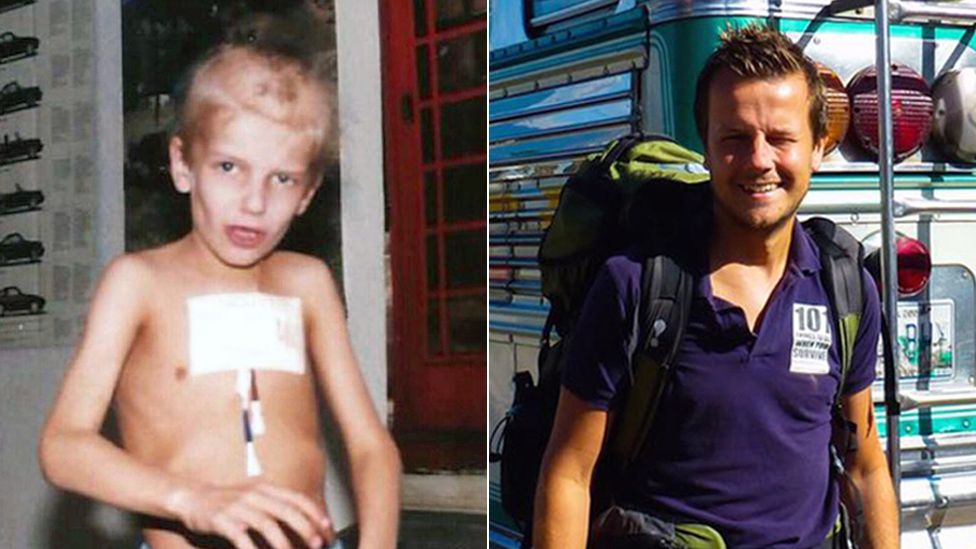Two-time cancer survivor 'feared' disease's return
- Published

For Greig Trout, getting cancer at the age of seven was not the worst part of his battle.
Nor was being diagnosed again at 30.
After receiving his second all-clear, the disease was gone but its psychological effects were not.
Mr Trout, now 37, says he became "gripped by anxiety, and the fear of cancer coming back, or the fear that maybe it hadn't gone".
He struggled with post-traumatic stress disorder, insomnia and skin problems which were so bad that he hated himself and stayed inside his house.
He calls this fearful phase the "worst part of my journey", and says he did not know how to deal with it.
In a report released on Monday by Macmillan Cancer Support, experts say an "extraordinary" number of people are now alive many years after they were diagnosed with cancer.
But it warns that thousands of people struggle with the physical, emotional and financial effects of a cancer diagnosis and treatment for many years afterwards.
People like Mr Trout.
'Guilty, angry'
"I felt guilty, angry at myself," he says.
"I'm still standing," Greig Trout tells John Humphrys
"At times I was thinking 'am I ungrateful for feeling this way after having survived when so many others don't?'."
Looking back, he now feels differently.
"It doesn't really get more traumatic than getting cancer, so it's just a normal reaction to having to go through such a horrific life event," he says.
At the age of seven, having been diagnosed with a Wilms' tumour, he underwent radiotherapy and chemotherapy and had his right kidney removed.
But Mr Trout, from Thames Ditton in south-west London, says getting cancer as an adult was worse.
'Am I going to die?'
"As a child I apparently only ever asked my mum and dad once if I was going to die," he says.
"They told me that they loved me too much and they wouldn't let that happen and I never asked again.
"When you're an adult, doctors tell you absolutely everything and you've got things like rent, job, relationships, all these things to contend with."
He was "far more unwell" as an adult - when he had a 10cm (4in) tumour removed from his bowel - but he says the illness also affected him "a lot more psychologically".
Mr Trout says "fantastic" counselling from Macmillan Cancer Support helped him cope.
He went travelling, visiting 23 countries in two years, and set up a website called 101 things to do when you survive.
"I still think about cancer a lot and it coming back, but I'm more equipped now to get myself out of those negative thoughts and it doesn't affect me like it did a few years ago," he says.
- Published1 August 2016